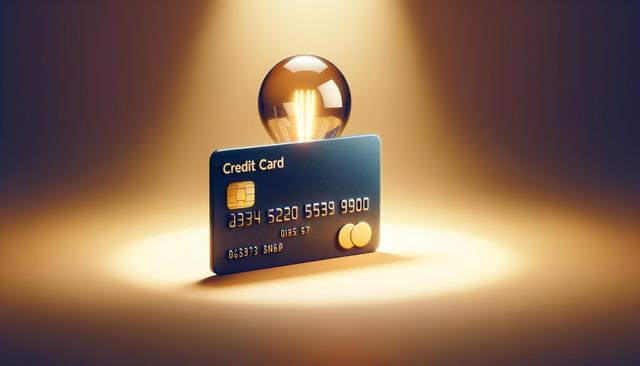What Are Credit Cards and How Do They Work?
Credit cards are financial tools issued by banks or credit unions that allow users to borrow funds up to a pre-approved limit. These cards can be used for purchases, bill payments, and online transactions, with repayment typically due at the end of each billing cycle. If the full balance isn’t paid off, interest is charged on the remaining amount. Many credit card providers offer features such as reward points, cash back, and fraud protection to enhance the user experience. Understanding how these cards operate can help individuals make informed financial choices and avoid common pitfalls such as debt accumulation or missed payments.
One of the main advantages of credit cards is their ability to facilitate quick credit card processing in both physical and digital environments. This efficiency is especially beneficial for businesses and customers looking for seamless transaction experiences. Moreover, many services now offer easy credit card processing, making it accessible even for small enterprises or freelancers to accept credit card payments without complex setups.
Types of Credit Cards Available
There are several types of credit cards tailored to different financial needs and spending habits. Some of the most common include:
- Standard credit cards – basic cards with a set credit limit and no special features.
- Rewards cards – offer points, cash back, or travel rewards on purchases.
- Secured credit cards – require a security deposit and are ideal for building or repairing credit.
- Business credit cards – designed for small business owners to manage expenses and track spending.
- Student credit cards – created for college students with limited or no credit history.
Choosing the right type of credit card depends on your financial goals. For instance, if you’re looking to build credit, a secured card might be the right fit. On the other hand, frequent travelers may benefit more from cards that provide travel-related perks. Many of these options now come with instant credit card processing capabilities, enhancing their usability in real-time scenarios.
Understanding Credit Card Fees and Interest Rates
Credit cards may come with various fees and interest rates, which can impact their overall cost. It’s crucial to understand these charges to avoid unexpected expenses. Common fees include:
- Annual fees – charged yearly for using the card.
- Late payment fees – imposed if you miss the payment deadline.
- Foreign transaction fees – applied to purchases made outside your home country.
- Cash advance fees – incurred when withdrawing cash using your credit card.
Interest rates, also known as APR (Annual Percentage Rate), can vary based on your creditworthiness and the card issuer’s policies. While some cards offer promotional 0% APR for a limited time, others might have higher ongoing rates. For users focused on affordability, seeking the cheapest credit card processing options can help minimize costs, especially for business owners who process multiple transactions daily.
Security and Responsible Usage
Security is a top priority when using credit cards. Most cards today come equipped with EMV chips and contactless technology to protect against fraud. In addition, many issuers offer real-time alerts, two-factor authentication, and zero-liability policies for unauthorized transactions. However, security also involves user responsibility.
To use credit cards wisely and maintain a healthy credit profile, consider the following tips:
- Always pay your bill on time to avoid interest and late fees.
- Keep your credit utilization ratio below 30% of your credit limit.
- Monitor your statements and report suspicious activity immediately.
- Avoid maxing out your card, as it can negatively affect your credit score.
By understanding the importance of responsible usage and choosing cards with easy credit card processing features, users can enjoy the benefits of credit without falling into debt traps.
The Role of Credit Cards in Business
For businesses, credit cards are more than just a payment method—they’re a financial management tool. Accepting credit card payments can significantly increase sales by offering customers more flexibility. Additionally, many businesses rely on credit cards to cover short-term expenses or earn rewards on operational spending.
When selecting a payment processor, companies often look for a provider that offers quick credit card processing, low transaction fees, and dependable service. The cheapest credit card processing solution may not always be the one with the lowest fees, but the one that offers a balance between cost, speed, and reliability. Key features to look for include:
- Transparent pricing without hidden fees.
- Fast deposits and settlement times.
- Integration with accounting or sales platforms.
- Reliable customer support.
With the rise of mobile and online commerce, it’s essential that businesses offer instant credit card processing to meet consumer expectations. This not only enhances customer satisfaction but also streamlines operations and improves cash flow management.
Conclusion: Making Credit Cards Work for You
Whether you’re an individual managing personal finances or a business owner handling daily transactions, credit cards offer a versatile and convenient tool for spending and financial planning. By understanding the types of cards available, the associated costs, and how to use them responsibly, you can make informed decisions that align with your financial goals. Choosing services that offer quick credit card processing, easy credit card processing, and even the cheapest credit card processing options can further enhance your experience and reduce operational burdens. With the right approach, credit cards can be a valuable asset in achieving financial flexibility and control.




Leave a Reply